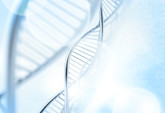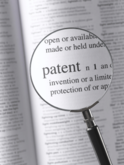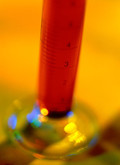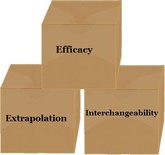Biosimilars
Merck Group starts phase III trial for adalimumab biosimilar
Germany’s Merck KGaA (Merck Group) announced on 2 March 2016 that it had started a phase III clinical trial for its adalimumab biosimilar (MSB11022) in patients with chronic plaque psoriasis.
Extrapolation of indications for mAbs
Monoclonal antibody (mAb) biosimilars have recently entered the market, raising questions in the healthcare community. One of the questions discussed by Professor Pierre Michetti, a gastroenterologist at the Centre Hospitalier Universitaire Vaudois, Lausanne, Switzerland, was that of extrapolation of indications for mAbs [1].
Amgen sues Sandoz over etanercept biosimilar
Following the submission of application for approval of its etanercept biosimilar in the US, Sandoz is coming under fire from originator company Amgen.
Epirus starts phase III trial for infliximab biosimilar
US-based biologicals company Epirus Biopharmaceuticals (Epirus) announced on 9 February 2016 that it had started a phase III trial for its infliximab biosimilar (BOW015).
Beyond biosimilarity
The advent of monoclonal antibody (mAb) biosimilars has raised a series of questions in the healthcare community. Just a few of these questions were discussed by Professor Pierre Michetti, a gastroenterologist at the Centre Hospitalier Universitaire Vaudois, Lausanne, Switzerland [1].
Sandoz acquires EEA rights to infliximab biosimilar from Pfizer
Sandoz, the generics division of Novartis, announced on 12 February 2016 that it had acquired the rights for the development and commercialization of Pfizer’s biosimilar infliximab (PF-06438179) in the European Economic Area (EEA), which includes the 28 countries of the European Union (EU), plus Iceland, Liechtenstein and Norway.
FDA releases ‘Overview of Biosimilar Products’
As part of its ongoing mission to educate industry, the public and healthcare professionals about biosimilars, the US Food and Drug Administration (FDA) has released an online educational course for healthcare professionals.
Trastuzumab non-originator biological approved in Russia
Russian biotechnology company Biocad announced on 20 January 2016 that the Russian Ministry of Health had approved the company’s trastuzumab non-originator biological, BCD-022. The drug is a non-originator biological of Roche’s breast cancer blockbuster Herceptin (trastuzumab).
Efficacy and safety of biosimilar infliximab compared to other biologicals in rheumatoid arthritis
In the paper by Baji et al. [1], the authors carried out a meta-analysis to compare the efficacy and safety of biosimilar infliximab and other available biologicals for the treatment of rheumatoid arthritis (RA), namely abatacept, adalimumab, certolizumab pegol, etanercept, golimumab, infliximab, rituximab and tocilizumab. The analysis compared the recommended doses of biological disease-modifying anti-rheumatic drugs (DMARDs) indicated in RA.
Safety concerns limit similar biologics uptake in India
How do concerns about the safety of domestic biologicals limit the uptake of ‘similar biologics’ in India? This is a question that author Malipatil tried to address in his review of similar biologics in India [1].













